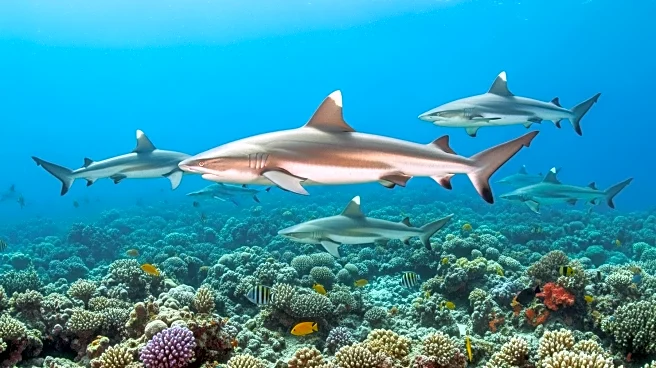What's Happening?
Several cities in southern Brazil have vowed to stop purchasing shark meat, particularly the angelshark, after a Mongabay investigation revealed its presence in public institutions like schools and hospitals. The investigation highlighted that the angelshark, which includes endangered and critically endangered species, was being served under the generic label 'peixe anjo.' This practice raised concerns about biodiversity protection and health risks, as sharks accumulate heavy metals like mercury and arsenic. Porto Alegre ceased procurement in 2021, and other municipalities are following suit, driven by both conservation efforts and health warnings from scientists.
Why It's Important?
This decision marks a significant step in biodiversity conservation, as it addresses the exploitation of threatened shark species. By halting the procurement of angelshark meat, Brazilian cities are contributing to the protection of marine ecosystems and endangered species. Additionally, the move highlights the importance of accurate labeling and awareness of health risks associated with consuming apex predators. This shift could influence public policy and consumer behavior, encouraging more sustainable practices and greater scrutiny of food sources.
What's Next?
Municipalities may review and revise procurement policies to ensure compliance with biodiversity protection strategies. There could be increased efforts to educate the public about the environmental and health implications of consuming shark meat. Furthermore, this development might prompt other regions to reassess their practices and adopt similar measures, potentially leading to broader conservation initiatives across Brazil.








